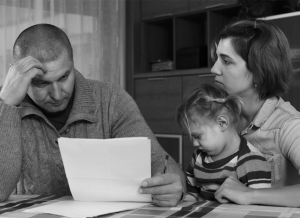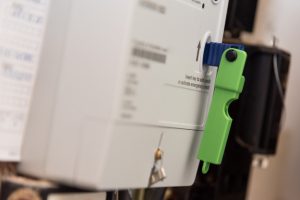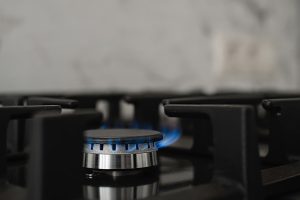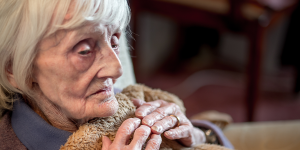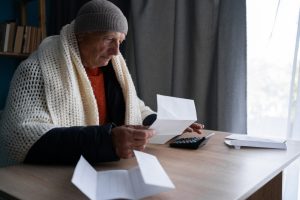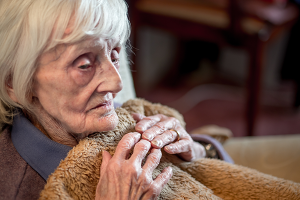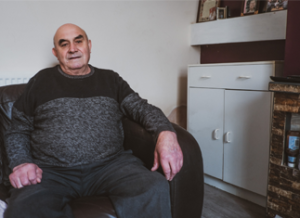The UK Government is changing the targeting of the Warm Home Discount scheme and this week is due to launch a new telephone service for households to check their eligibility. Fuel poverty charity National Energy Action (NEA) and Scope, the disability equality charity, warn that over 500,000 households across England and Wales who were previously able to receive an electricity rebate from their energy supplier will now not be eligible for this support.
Further to our exclusive story with the BBC, here are the full details.
Adam Scorer, Chief Executive of National Energy Action (NEA) says:
“The Warm Home Discount is a winter lifeline. It is a vital part of the energy bill support schemes and yet over half a million low-income and vulnerable households who aren’t on benefits or who live in marginally smaller or newer homes will no longer receive the rebates. These households are likely to be either single people, single parents or disabled households. Removing a £150 rebate from these vulnerable groups is unwelcome and an unnecessary change to a vital programme – especially during an energy crisis”.
James Taylor, director of strategy at charity Scope, says:
“It’s shameful the government is taking away the Warm Homes Discount from those who need it most. Life costs a lot more when you’re disabled. Scope is hearing from disabled people whose health will deteriorate if they can’t stay warm. People who are having to turn off fridges, and who are worried about how they will run vital equipment like breathing machines and powered wheelchairs. The government needs to provide more direct financial support now, not less, so disabled people don’t freeze and starve this winter.”
National Energy Action and the Food Foundation charity recently highlighted, as energy prices rose again at the start of last month, one quarter of parents have already cut back on the quantity of food to afford essentials.
Alongside many other charities, NEA and Scope warn that with average annual domestic energy bills now at a record £2,500, almost double the level of last year, the most vulnerable people in society are likely to struggle to live in warm, safe home. 6.7 million UK households are now in fuel poverty. That includes over three million households with disabilities or long-term health conditions.
Even with the energy price guarantee and the existing support package, the charities are calling for the UK Government to offer more help for the most vulnerable people to afford their energy bills this winter and beyond. At the very least it should not remove support from these households during the current energy price crisis.
Households who received the Warm Home Discount rebate last year should have been able to access new funding for a rebate for the upcoming winter from their energy supplier. They highlight this would cost 0.002% of the UK Government’s current UK Energy Price Guarantee. They also share growing calls for the UK Government to adopt a new mandatory social tariff to ensure that low-income and vulnerable people are better able to afford the energy they need to stay warm and well at home.
Adam Scorer concludes:
“The changes are already causing confusion from people who we were previously able to help get support. People are planning for and relying on this support. They will be appalled that these changes are being made, at this time. One in five households who miss out could be on the Priority Services Register, meaning they are pre-disposed to have a vulnerability such as a medical health condition or needing to use medical equipment in the home to manage their health condition. Some of the most vulnerable people in our society could be left out in the cold. Charities like our own shouldn’t be left to pick up the pieces, we are already seeing record numbers needing our help more than ever.”
If this goes online, please link to www.nea.org.uk/energy-crisis
ENDS
Notes to editors
National Energy Action (NEA) works across England, Wales and Northern Ireland to ensure that everyone in the UK can afford to live in a warm, dry home. Scope, the disability equality charity in England and Wales, provides practical information and emotional support when it’s most needed, and campaigns relentlessly to create a fairer society.
The Warm Home Discount scheme provides eligible households across Great Britain with an automatic rebate of £150 for their energy bills each winter as well as wider support to other vulnerable customers through discretionary rebates, advice and assistance provided by range of third parties. Before the changes, low-income, working age households could access the scheme, if they met requirements set out by their energy supplier. This group of recipients was known as the ‘broader group’, and consisted of at least 2 million households, of which 1.1m received a rebate. Now, in England and Wales, this group needs to meet several additional criteria: if they are in receipt of a means tested benefit AND they are judged to have ‘high energy costs’ as a result of the: floor space of their property (more floor space = higher energy costs), age of their property (older households = higher energy costs) and/or type of their property (detached houses having a higher energy cost than terraced houses). In Scotland, the scheme is largely unchanged.
The result of the transition from the Broader Group to Core Group 2 will create winners and losers. The winners will be those living on a low income, that reside in older, larger houses. The losers will be approximately low income and vulnerable households that may or may not be on Means Tested Benefits (MTBs) who live in smaller, new houses. These households are likely to be either single people or single parents. Disabled households will also lose out from the changes because Disability Living Allowance and Personal Independence Payments are no longer qualifying benefits. It is also assumed that approximately 20% or more of households who could miss out will be on the Priority Services Register (PSR), meaning they are pre-disposed to have a vulnerability such as a medical health condition or needing to use medical equipment in the home to manage their health condition. NEA highlights the implementation of the new Core Group 2 to replace the Broader group was not done with the full consensus of stakeholders. Less than half of respondents to the consultation agreed with how households will now be automatically selected, and more than a third of respondents disagreed.
Analysis from the Joseph Rowntree Foundation has shown that the households that are most negatively impacted by rising energy prices are single working age people without children, followed by single working age families with children. Research from Scope shows that disabled people more than twice as likely to have a cold house, and three times as likely than others to not have been able to afford food. This will be exacerbated as we move into October, with much higher prices, and much colder weather. An additional difficulty with the move is the confusion that will be created with households that have previously received the rebate but can no longer even apply to receive it due to the new methodology. While the Government is setting up a new telephone service, this change will still create significant demand for energy supplier call centres, as well as for charities up and down the country.
In 2000, UK-wide legislation first defined a person living in fuel poverty as “a member of a household living on a lower income in a home which cannot be kept warm at reasonable cost”. Whilst an understanding of fuel poverty is still broadly consistent across the four nations of the UK, it is now measured in different ways in some UK nations. NEA bases its projections on the 10% of a household’s income as the definition of fuel poverty as it gives a realistic picture of the scale of fuel poverty in periods of more volatile energy prices. For more information visit: https://www.nea.org.uk/energy-crisis/.





